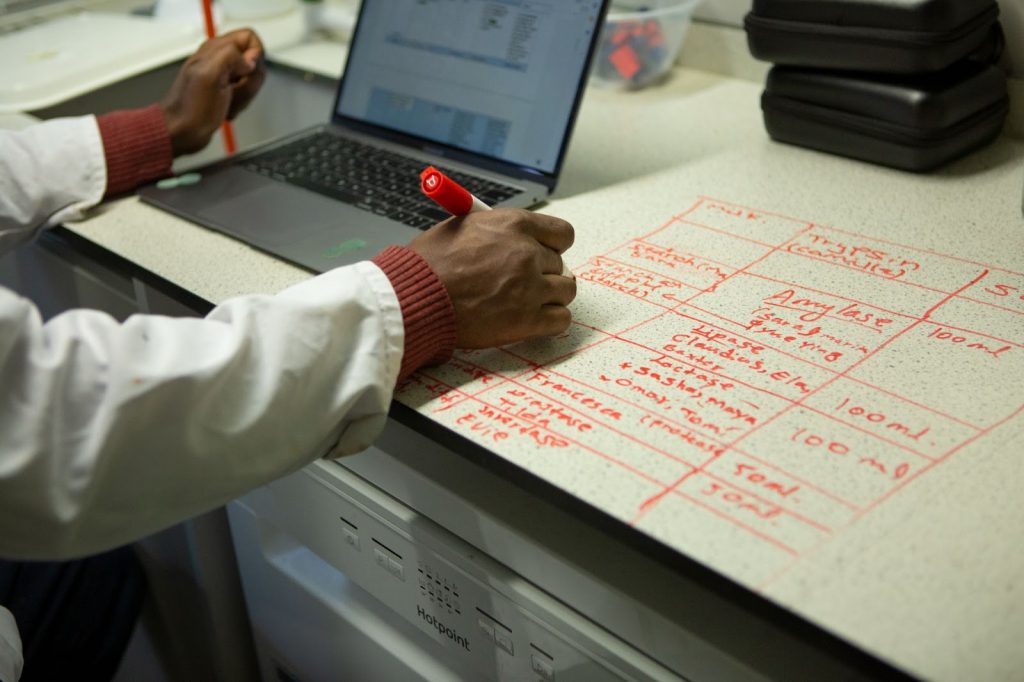
+

At Halcyon London International School, every member of staff - teaching, leadership, and administration - is trained in Cognitive Coaching. Every student has an assigned mentor, and spends a weekly coaching session with them, engaging in conversations that help them plan and reflect on their academic performance, behaviour, strengths and weaknesses, and involvement in school life.
We are the only school in the world to train every member of staff in Cognitive Coaching - a wellbeing practice that our Director answered some questions about in TES magazine.
As a form of mentoring, our Cognitive Coaching programme does more than guide students in the right direction: it teaches them to guide themselves, and flourish in the world as confident, independent, and impactful individuals.

“The mission of Cognitive Coaching is to produce self-directed persons with the cognitive capacity for excellence both independently and as members of a community.”
As educators, we are responsible for developing students’ skills, as well as their knowledge: their capacities in thinking, collaboration, communication, and creativity. As an International Baccalaureate school, we commit to the mission of producing “young people who help to create a better and more peaceful world” - and being able to think critically and reflectively about the experiences they encounter through life will support our students in fulfilling this goal.
Cognitive Coaching - a process in which a trained Cognitive Coach leads a coachee through a structured reflective or planning conversation - encourages students, the coachees, to become critical thinkers and problem solvers. When a student wishes to discuss a problem they find challenging, the Cognitive Coach does not aim to present a solution, or explain why the problem occurred - instead, the Cognitive Coach asks meditative questions that guide the student in exploring causal factors, perspectives, and strategies for the future on their own behalf.
Cognitive Coaching enables us to maintain a healthy and balanced approach to problem-solving not only as we navigate education and our careers, but also in situations that impact our personal wellbeing.
This cognitive development can be life-changing for young people and adults alike.
Our teachers seek to be the best that they can - and so do our students. through asking learners questions in the right way, our teachers are adept at building young persons’ capacity for self-assessment, bringing them to find their own strengths and weaknesses instead of relying on reports.
Beyond evaluating a student’s work, providing an opinion on their progress, or inferring something about their attitude to work, our teachers encourage students to do this themselves. Teachers make observations and ask reflective questions about students’ work to prompt a higher level of thinking - and we’re pleased to say that this is a successful approach in the classroom.
What does this look like? Instead of saying “Good job!” or “Do you think you could improve you time management skills?”, our teachers might say: “How do you think that went?” or “You didn’t complete the task in the time given.” Driving young people to make their own evaluations and conclusions prepares them to be impactful, self-driven individuals in the future.
Being trained in the art of questioning extends to tone of voice, too, ensuring that our students feel welcome and encouraged to reflect on their progress - being an approachable educator - is paramount for our classroom teachers.

In a Cognitive Coaching conversation, coaches pose questions and guide coachees in a deliberate, directed, and targeted way to support them in becoming the best that they can be.
Coaches seek to develop within their coachees the five ‘States of Mind’: Consciousness, Interdependence, Efficacy, Flexibility, and Craftmanship. These states of mind are all part of being a self-directed learner that can problem-solve and work well with others, and coaches often pose questions that encourage coachees to think about how they can develop these qualities.

Ensuring that every teacher is a trained Cognitive Coach also enables peer-coaching: teachers can support one another in reflecting on their strengths and weaknesses, as well as guiding their thoughts to help plan lessons, units, and time management over the course of a year. This also has a positive effect on staff wellbeing.
At Halcyon, peer coaching has nurtured a culture of shared responsibility for research, innovation, and constant improvement. And as we look to the future, we can’t wait for more families to enjoy a Halcyon education.
Read more:
Supporting New Students: Navigating Change and Academic Challenge
IB Student Profile: Lola, Grade 12, on the Diploma Programme
Cognitive Coaching: our Director explains our unique programme to TES
Subscribe to hear more updates on our curriculum, facilities, team and more: